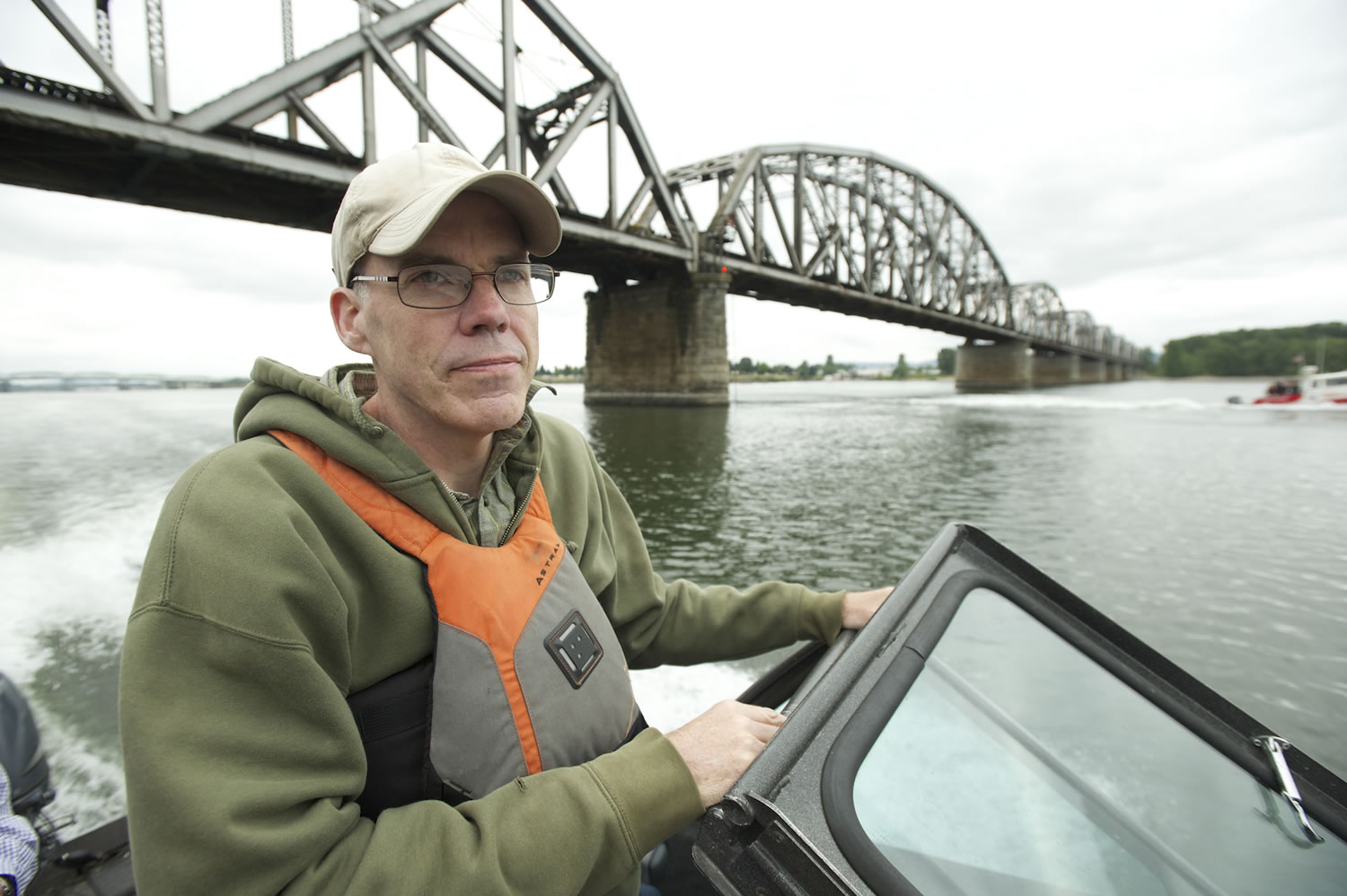Bill McKibben will speak at 7:30 p.m. tonight at Gaiser Hall on the Clark College campus. Doors open at 7 p.m., and tickets are available on a sliding-scale cost, with suggested donations of $5 to $50.
The proposal to build the largest oil terminal in the Pacific Northwest at the Port of Vancouver is no mere local controversy. Nationally known environmental activist Bill McKibben’s decision to tour the Columbia River on Wednesday morning put an exclamation point on that fact.
Organized by Columbia Riverkeeper, the boat tour launched at Marine Park and headed for the site where Tesoro Corp. and Savage Companies want to build a crude oil facility that would handle as many as 380,000 barrels of crude per day.
The oil would eventually be refined into fuel for cars and trucks. And that’s exactly the problem, according to the 52-year-old McKibben. He sees the Tesoro-Savage proposal — along with numerous other oil- and coal-handling plans in the Northwest and across the country — as presenting a grave problem for a planet that’s already in trouble.
“It pushes us much further into the greenhouse world,” said McKibben, founder of 350.org, a global grass-roots movement to fight climate change. “That’s more carbon, and more carbon is the last thing we need.”
McKibben, a scholar in residence in environmental studies at Middlebury College in Vermont, speaks from experience. That includes his travels to China, where a new study in the Proceedings of the National Academies of Sciences concluded that pollution from coal burning will cut the life expectancy of nearly 500 million people living north of the Huai River by an average of 5.5 years — all told, a loss of 2.5 billion years of combined life expectancy.
McKibben also speaks from decades of writing about climate change, and tracking the science behind it all. And he’s no stranger to civil disobedience. In August 2011, he and dozens of other protestors were arrested in front of the White House, where they had assembled to oppose the Keystone XL pipeline — what McKibben described in Rolling Stone Magazine as “a 1,700-mile fuse to the biggest carbon bomb on the continent.”
Over the drone of the boat’s motor and the steady splash of waves Wednesday morning, McKibben said a transition to an economy based on renewable energy must happen soon.
That transition won’t be easy, but Germany’s embrace of solar power has shown it’s possible to make important strides in that direction, he said. And the consequences of burning fossil fuels for decades — the rapid melting of Arctic sea ice, a 30 percent increase in ocean acidification and a rise in extreme weather events — require the transition be made.
A key step toward that transition is to stop building the infrastructure to support burning more fossil fuels, McKibben said, including the oil terminal proposed at the Port of Vancouver.
At one point during Wednesday’s tour of the Columbia, the boat stopped and drifted for a bit. McKibben said he’s surprised that he ended up being a leader in the fight against climate change. “I’m a writer,” he said.
But he’s passionate about where he’s at now. Climate change is the biggest challenge “human beings have ever faced in our time on earth,” McKibben said. “This is the fight.”




